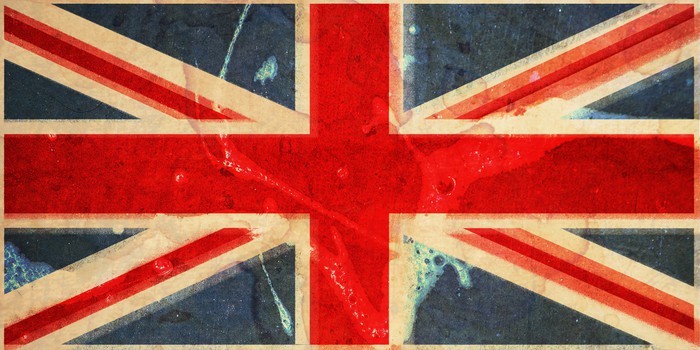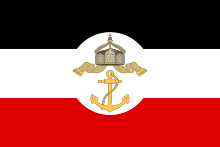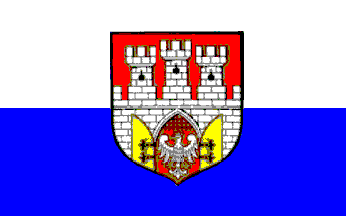- Location
- Not the hills of home
Cardiff, 1899

One month since the establishment of the emergency government

One month since the establishment of the emergency government
April
The building James Maclean had chosen has his headquarters buzzed with activity. Runners entered and exited the building in hurried fashions, relaying messages and occurrences to the many staff that currently occupied the building. The building itself had once served as Cardiff's fire hall, and before that, it had been a church. It was not his preferred location, but its position near the centre of the city, and nearby the local government house which severed a secondary function in government was worth compromising his preferences.
It had been little over a month since he had formed the emergency government and found himself at its head. Using his experience from his time in Bombay, he had quickly organised the affairs of the area into a more manageable fashion. He appointed members of government to oversee the various important aspects the city required. The Chief Constable had been appointed head of not only the City police, but those that remained of the Glamorgan Constabulary as well, various business owners had been approached to oversee areas of their respective expertise, from food stores and livestock to the railways and coal and take stock of the situation during this time of emergency.
One of these men was Edward Reed. Even though they had found themselves on opposite sides of the house, with Reed a loyal liberal, there was no denying the man was capable, being one of the foremost naval architects in Britain and a capable rail magnet. Reed had held the Cardiff seat in parliament before being ousted by Maclean, a fact both men were more than well aware of. Maclean was wary of the inherent nature of Wales being a Liberal hotbed and appointing his political rival as an act of unity between the two parties had been the only logical move, though he could not help but wonder what actions Liberal-minded members of the government might push forward in the absence of the presence of Westminster and more level-headed men.
For now, things were progressing at a smooth pace, and the challenges before them ensured that there was a degree of unity among the fractions, at least for the time being.
Reaching Out
A few days into the tenure of the new government, messengers emerged from the Cavalry Barracks military installation in Newport, a location Maclean had been unaware of. He was not a military man, rather a journalist and administrator, and the discovery that there were several regiments of her majesty's soldiers that had sat idle during the initial confusion angered him greatly, and the cornels excuse of a lack of orders did little to stem his temper. Despite their lack of action, however, Maclean had discarded the temptation to turn them away. The situation was too dire, and the presence of trained professional soldiers, rather than simply the militia battalion he had managed to rally, would prove invaluable to their security. What's more, these four regiments were Dragoons, with access to military horses. Though not all of the horses of the various regiments were stationed at the base to saddle all of the soldiers there were more than enough to outfit a single regiment. With their lines of communication cut, those horses would be vital in getting news to London as quickly as possible.
It was around this time that a captain of a tramp steamer had finally had enough of the delays caused by the Dome of Fire, manned his ship and crew, and departed for Bristol over the mouth of the Severn and onwards to Bristol with its shipment of coal, promising to relay a message to the authorities there. This ship would return a short time later, the captain's face ashen as he told of the disappearance of his destination. Bristol, its buildings often easy to spot from the shore, had vanished. The matter was further complicated by the passengers the ship had brought aboard, residents from a village on the other side of the Bristol Channel called Kewton. Maclean didn't know the original population of the village, but a few hundred souls remained according to those who had been brought into Cardiff by the passing ship they had managed to signal and board. It had been a disappointment to learn from the passengers that the village had also been caught in the dome, and much like the other side of the Channel, an eerie wilderness existed outside of it, where structures and buildings had once stood.
This abrupt end to civilisation had made many people weary, causing them to retreat into the town away from the apparent barrier that had been placed around them. This had made things difficult, as the Maclean government struggled to find volunteers to venture outward to attempt contact with neighbouring towns or cities. The ship captains' story had spread amongst the populace, and some of the more superstitious of the populace has begun to mutter of a curse, causing the reluctance to cross the line to spread further.
In the end, it had been a farmer, set on recovering their missing livestock, who had eventually dared to cross the barrier that had been erected by the dome. His passing over the line, witnessed by many of his family and neighbours soon spread to other corners of Cardiff, causing some to treat it as a game – daring their friends to cross the line as a test of courage. This was something Maclean himself quietly encouraged, in hopes of ridding people of their self-imposed exile and fear of the surrounding land.
It was soon after that the government in Cardiff was able to gather enough volunteers, a handful of soldiers, police and community representatives to venture forth on horseback and head for Bristol.
Taking Stock
Cardiff was, in every sense of the word, a town of the Industrial Revolution.
Cardiff was a hub of the global coal trade, one of the largest coal exporting docks on the planet. Many civilian steamers of varying sizes lay moored in its docks, and there was no shortage of coal from the Valleys awaiting transport around Britain and the world.
There was also a great presence of iron, being the towns other major export, and as a result many different industries. A steelworks close to the docks at East Moors had been built little under a decade before and it had recently become the site of the University College South Wales and Monmouthshire in 1893. Railways connected the town to both the rest of Wales and further towards London itself. The town possessed a paper mill, a school board, health board, medical and naturalist societies, an infirmary and numerous local sections of the arts and sciences. Though far from the likes of London is size, influence and scope, the town, or rather city at this point, was certainly no backwater.



